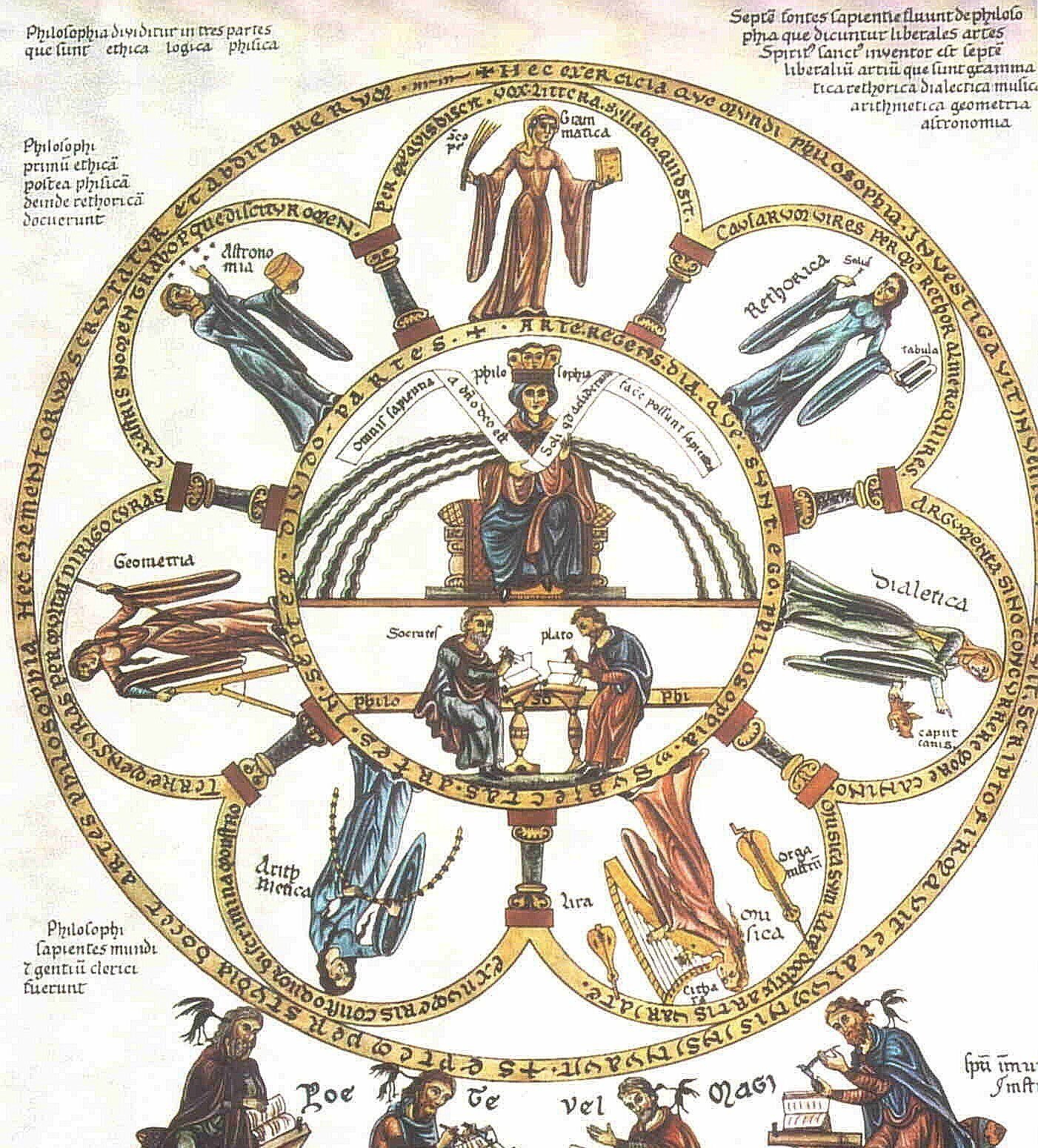What is a classical education?
Illustration of the seven liberal arts: Grammar · Logic/Dialectic · Rhetoric · Arithmetic · Astronomy · Music · Geometry
Our program is centred on great and enduring works of art, literature, and philosophy. Through the study of classical works from around the world, students become conversant with the past. They learn to inhabit different perspectives, think deeply about life’s most fundamental questions, and develop intellectual and moral discernment.
Although academically rigorous, a true liberal arts education is not limited to making students narrowly useful or equipping them for material success. Recalling Confucius, we hold that “an educated person is not a tool.” Children are not merely future workers; they are future friends, spouses, neighbours, parents, and citizens. They are bearers of souls, which thirst after knowledge of the true and the good. A classical education prepares students not only to live, but to live virtuously and with purpose.
Classical education is distinct from the dominant form of education currently offered in Alberta public schools:
Whereas most education programs are narrowly focused on career readiness, a classical education aims to cultivates virtue, wonder, and a love of wisdom. It is an emancipatory undertaking, not a utilitarian one.
Classical education aims to preserve, transmit, and build upon the wisdom of past generations — not to repudiate or dismantle it.
Instead of teaching abstract “skills” divorced from knowledge, classical education is rich in content and highly integrated across grade levels and disciplines, and aims to produce a coherent understanding of our world.
Contrary to the dominant ethos of value subjectivity and non-judgement, classical education is rooted in an objective standard of truth, beauty, and goodness, and aims to orient pupils toward these ideals.
Classical education is not innovative per se; it represents, rather, a rediscovery of classical methods of education that prevailed for millennia.

